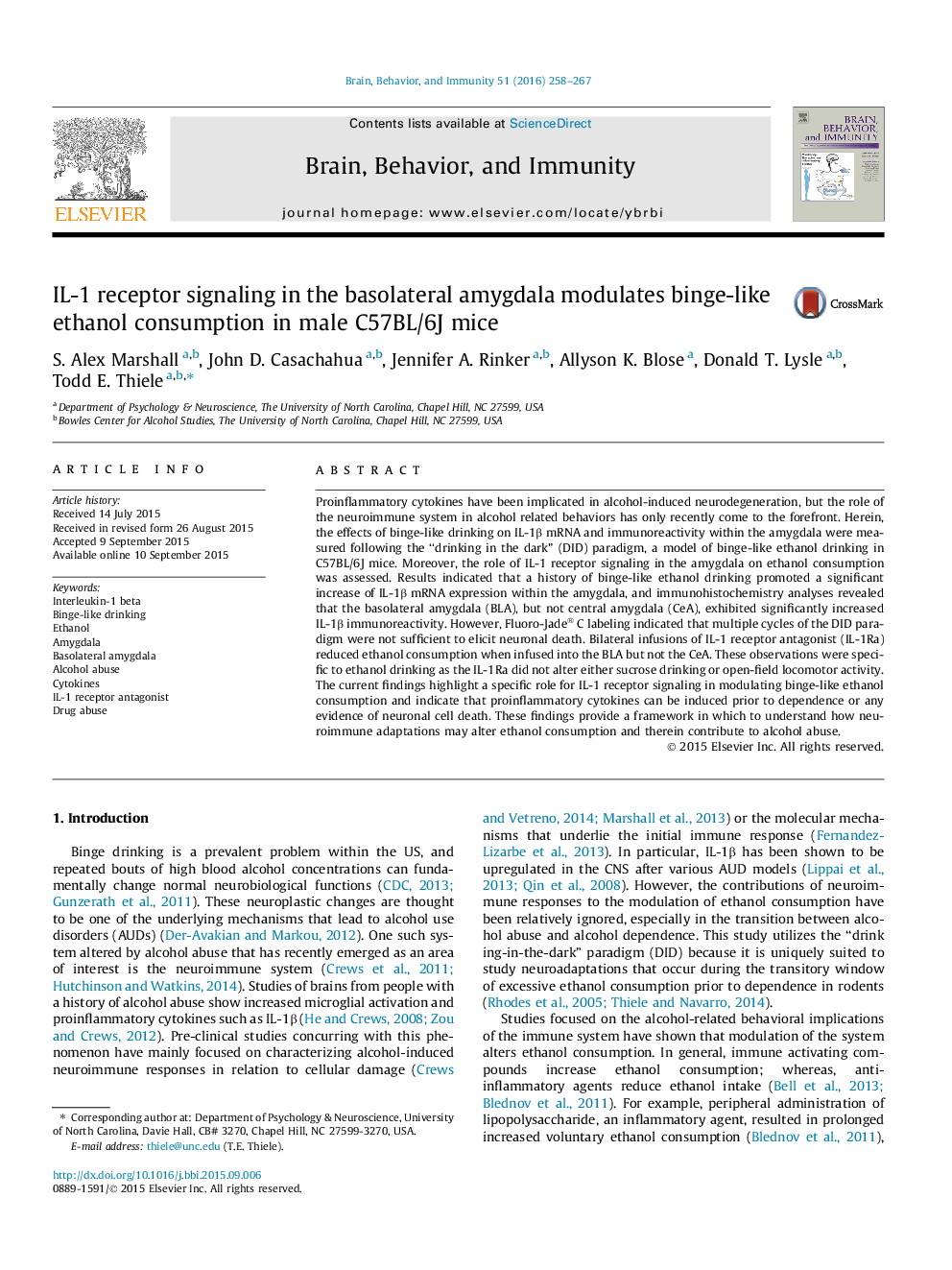| Article ID | Journal | Published Year | Pages | File Type |
|---|---|---|---|---|
| 922209 | Brain, Behavior, and Immunity | 2016 | 10 Pages |
•Amygdalar IL-1β mRNA is increased for an extended period after binge-like drinking.•Alcohol-induced IL-1β increased immunoreactivity is specifically in the BLA.•Ethanol associated changes in IL-1β occurred independent of neurodegeneration.•IL-1R antagonist administration in the BLA but not CeA reduced ethanol consumption.•IL-1 receptor signaling in the amygdala has a role in binge-like drinking.
Proinflammatory cytokines have been implicated in alcohol-induced neurodegeneration, but the role of the neuroimmune system in alcohol related behaviors has only recently come to the forefront. Herein, the effects of binge-like drinking on IL-1β mRNA and immunoreactivity within the amygdala were measured following the “drinking in the dark” (DID) paradigm, a model of binge-like ethanol drinking in C57BL/6J mice. Moreover, the role of IL-1 receptor signaling in the amygdala on ethanol consumption was assessed. Results indicated that a history of binge-like ethanol drinking promoted a significant increase of IL-1β mRNA expression within the amygdala, and immunohistochemistry analyses revealed that the basolateral amygdala (BLA), but not central amygdala (CeA), exhibited significantly increased IL-1β immunoreactivity. However, Fluoro-Jade® C labeling indicated that multiple cycles of the DID paradigm were not sufficient to elicit neuronal death. Bilateral infusions of IL-1 receptor antagonist (IL-1Ra) reduced ethanol consumption when infused into the BLA but not the CeA. These observations were specific to ethanol drinking as the IL-1Ra did not alter either sucrose drinking or open-field locomotor activity. The current findings highlight a specific role for IL-1 receptor signaling in modulating binge-like ethanol consumption and indicate that proinflammatory cytokines can be induced prior to dependence or any evidence of neuronal cell death. These findings provide a framework in which to understand how neuroimmune adaptations may alter ethanol consumption and therein contribute to alcohol abuse.
